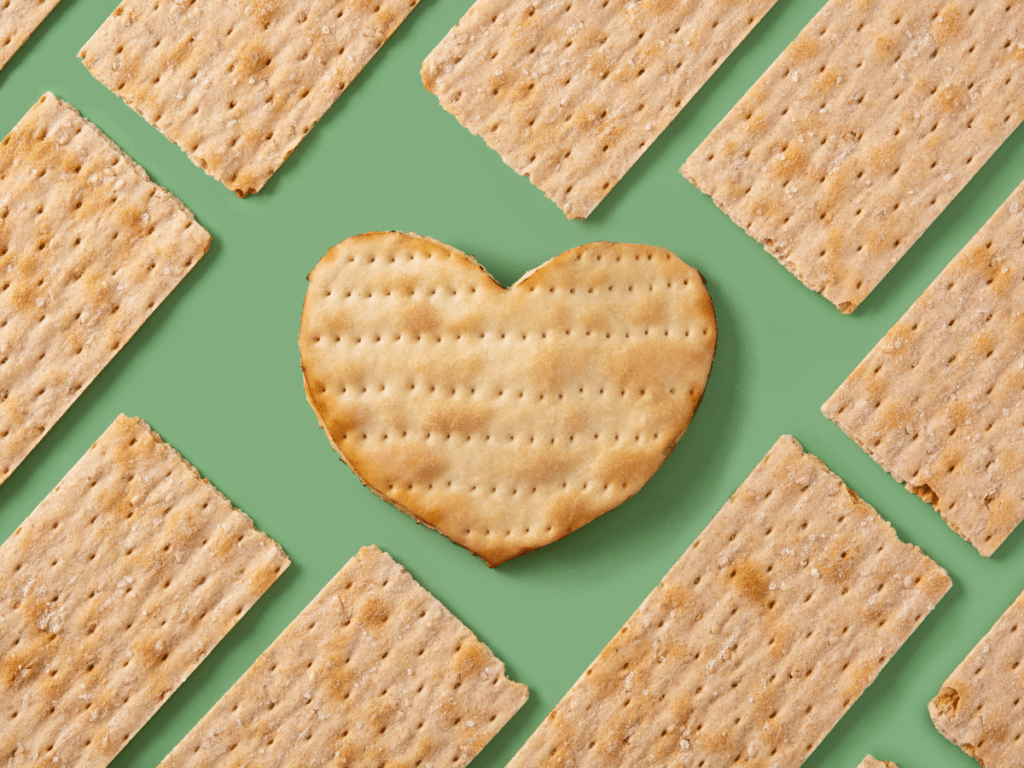The fundamental principle of Passover is that in every generation, the Jewish people are obligated to see ourselves as though we personally came out of Egypt. “Be’chol dor va’dor chayav adam lirot et atzmo ke’ilu hu yatzah mi Mitzrayim,” in Hebrew.
That’s why the Passover story is told (and even reenacted) every year at the Passover seder. We eat bitter herbs in order to “taste” the bitterness the Israelites endured, and charoset to remind us of the mortar Israelites used to make bricks as slaves. We “recline” in our chairs to recognize that today we are free to enjoy a meal, unlike when the Jewish people were slaves in Egypt.
In the days leading up to Passover, Jews take the time to clear their pantries and homes of chametz (leavened food products) — in what you could call uniquely Jewish spring cleaning. We stop eating chametz and even remove it from our homes to remember that our ancestors were in such a rush to leave Egypt that they did not have time for their bread to rise.
As we recall our ancestors’ flight from Egypt and clean for Passover, we also have an opportunity to leave behind a different type of chametz: the internal kind.

“Leavening makes stuff puff up, right? Hasidic teachings take chametz to also mean the internal ‘puffiness’ — like arrogance or ego,” Rabbanit Leah Sarna told Unpacked in an interview.
Sarna, who is the associate director of education and high school programs at the Drisha Institute for Jewish Education, shared a few ways to explore the concept of ‘internal chametz.’
Internal chametz?

The word chametz comes from the Hebrew ‘l’chimutz,’ meaning to sour or ferment. Physically, this refers to leavened grains like wheat, barley, oats, spelt and rye that have come into contact with water and leavened or “risen.”
In an emotional or spiritual sense, chametz can also be understood as anything that causes “our egos to inflate and our sense of self-worth and self-importance to rise to unhealthy levels,” Rabbi Jordan Ottenstein noted.
Internal chametz might look like inflated ego or pride, or unresolved emotions like resentment and jealousy.
Passover is an opportunity to reflect on what has been building up internally and release those challenging emotions that hold us back, Ottenstein said.
Isn’t that what we do on Yom Kippur?
Leading up to Yom Kippur, Judaism’s day of atonement, Jews engage in cheshbon hanefesh, “an accounting of the soul.” We are called to reflect and ask forgiveness of people we may have wronged during the year and engage in teshuvah (meaning “repentance” or “return”).

How is examining our “internal chametz” different from cheshbon hanefesh?
“There’s a difference between what we do around Yom Kippur and what we do around Passover,” said Sarna. Passover can serve as a type of check-in halfway through the year.
On Yom Kippur we atone for sins and hope we “never see them again,” she explained. Whereas, during Passover, we recognize that the prohibition on chametz is only temporary. In the spiritual sense, maybe there’s something in your life you need to take a break from.
“It doesn’t necessarily have to be bad,” she said, using social media as an example. “But maybe it just plays too big a role in your life.”
How to spring clean your soul

According to Sarna, one way to approach “spiritual spring cleaning” is to explore the things that have “built up” during the year so you can focus on your intentions moving forward.
This is an opportunity to examine and understand ourselves better, she said.
“Personally, when I’m cleaning, I always find things that make me think: How did this get here!?” Sarna said, laughingly.
When reflecting on your own internal chametz, ask yourself, “How did this get here? What event was this from? How long has it been here?”
Cleaning is something we do routinely, Sarna noted. As we clean our homes (and hearts) for Passover, we must acknowledge that we will have to clean them again.
From the narrow place

Since Passover is all about seeing yourself as though you personally came out of Egypt, the primary question you have to think about is: “In what ways are you free and not free?” said Sarna.
We can think about this in the physical sense — how are you trapped by forces outside of your control? Or, in the emotional sense — when do you feel the most free?
Psalms 118:5 raises the concepts of freedom and captivity:
“From the narrow place (metzar) I called out to God; God answered me from the expanse.”
The Hebrew word for Egypt (Mitzrayim) comes from the root, “metzar,” meaning “a narrow place,” Sarna explained. Slavery in Egypt confined us to a narrow place that constricted us physically, emotionally and spiritually. The Exodus is the story of liberation from this narrow place.
“The recognition of the narrow places we find ourselves [in] — the constriction, the fear, the darkness — is a necessary first step in embarking on accessing the expansive light,” wrote artist Deborah Sacks Mintz, about why she created a melody for the Psalm.
This verse invites us to consider the ways in which we experience narrowness and expansiveness in our own lives, added Sarna.
“There’s both physical constriction and expansiveness that we’ve all been experiencing — going from quarantine to now where you can go out and travel again. There are also narrow and expansive ways of thinking or seeing the world.”
You can explore this theme through personal reflection or at your seder table, with questions like: “What is narrow or constricting about you or about your life right now?” “What would liberation from those circumstances look like?”
It can be challenging to answer these questions, but this is precisely what gives rise to important conversations, Sarna said.
“Around my seder table, this is the stuff we talk about. I definitely encourage others to do the same.”
Did this resonate with you? Let us know on Instagram, Twitter, and TikTok!
